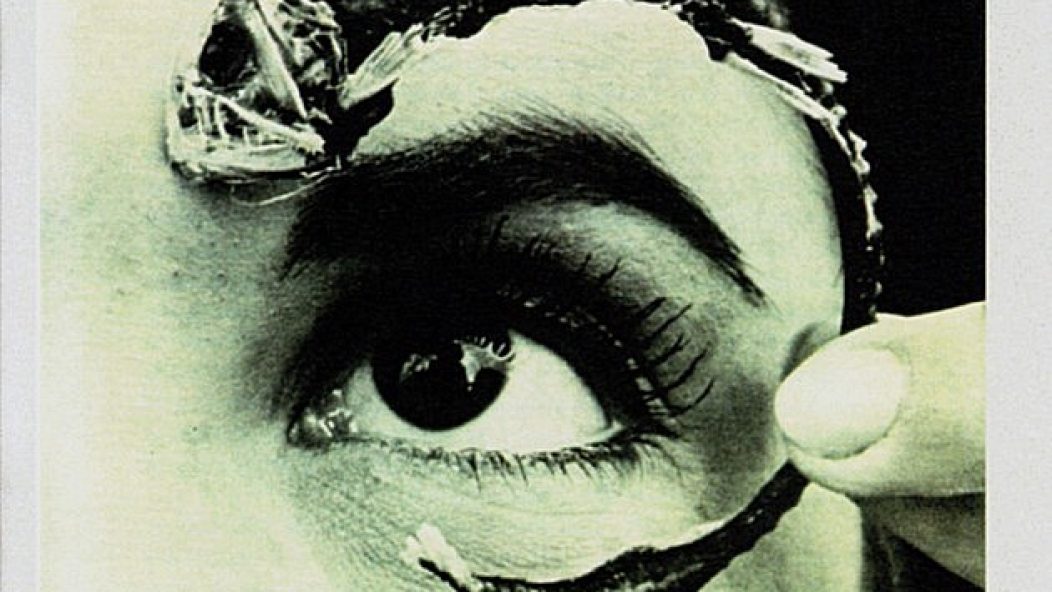
Mr Bungle's Disco Volante Turns 20
…
For several generations of listeners, it was the music of Frank Zappa that introduced the idea that rock/pop and the avant garde could co-exist when tempered with liberal doses of goofiness and sarcasm. Zappa, obsessed equally with 50’s doo-wop and modernist composers like Edgard Varèse, often indulged himself through his long career by recording unfashionable or difficult music, but also took a conciliatory approach toward acknowledging popular trends, be it psychedelic rock, electric blues, longform jazz fusion, or post-Eddie Van Halen shredfests.
Mr. Bungle, a band of misfit geniuses from Eureka, California, started out with a fairly similar approach. After cutting a juvenile thrash demo tape, the group recorded several more demos sporting what was more or less a funk-metal sound that was fairly prevalent in the Californian “alternative” scene. Bungle then managed to parlay one hit song from vocalist Mike Patton’s other band of the time into an unlikely three-album deal with Warner Bros. Records. I crave a Bungle reunion album/tour more than I do for any other band, but if they never reconvene, thankfully they left the world with a Campbellian hero’s journey of albums that saw the band evolve from precocious perverts to sophisticated world-pop maestros.
My personal favorite is their last album, the 60’s inspired Caifornia, an elegant middle finger to all the first-gen nu-metal bands who cited the group as an influence based on what they were a decade ago. It was mystifying an aesthetic change as their second album, Disco Volante, was from their eponymous debut. Whereas California is mostly lush and luxurious, Volante is dark and demented. If you think of the Bungle albums as a trilogy; it’s totally their Empire Strikes Back, and we’re wishing it a belated birthday today.
Mr. Bungle’s genre-hopping approach is on its broadest display on this record. Styles represented include but are not limited to: Thrash metal, sludge, free jazz, house, country, musique concrete, Middle Eastern music, Italian progressive rock, early synthesizer experiments, cartoonish foley work. John Zorn’s Naked City project delved into extreme eclecticism before, but the occasional problem with that band was that it sometimes felt like Zorn assembled the wrong personnel to make the music he wanted. Guitarist Bill Frisell, known for his crystalline Telecaster licks, sounded particularly lost trying to play heavy music. His attempts at metal evoke Duane Eddy more than Tony Iommi. Volante plays more to the strengths of the members, even if horn players Theo Lengyel and Clinton “Bär” McKinnon starting seeing their roles reduced.
The majority of the music was composed by bassist Trevor Dunn and guitarist/multi-instrumentalist Trey Spruance, and the pair play off each other almost like a twisted version of Lennon/McCartney. Dunn’s pieces are mostly heavier and uglier, with “Carry Stress in the Jaw” and “Platypus” sporting the “jazz-metal” sound this album often gets tagged with. Spruance, on the other hand, tends to favor more meticulous arrangements. His lyrics, particularly on the fan favorite “Desert Search for Techno Allah,” also show his growing preoccupation with hermeticism and Islamic philosophy that would provide much of the conceptual framework for his current project, Secret Chiefs 3.
The record’s central tension lies mainly in its battle between virtuoso composition and chaotic moments of lobotomized madness. Synth squelches, bursts of harsh noise, road-to-nowhere outros, wild screams and weird voices loom everywhere like traps, but large portions of the disc remain downright hummable. “Ma Meeshka Mow Skwoz” is an all-time freakout song, one that would still be effective with half as many elements, yet it always hangs together as a solid composition. It’s as perfectly suited for your next DMT trip as it is for a high school percussion ensemble. “Phlegmatics” combines 12-tone serialism with a crossover drumbeat, sounding like something Robert Fripp may have written had he been born later and grown up with an extensive collection of hardcore 45s. “The Secret Song”, tacked onto the end of “Carry Stress in the Jaw” has a dark whimsy that feels like Henry Mancini suffering from delirium tremens. (I once went to a Dream Theater / Joe Satriani / King’s X concert in high school, and I remember DT playing this track as intro music. It was the highlight of the whole show.)
These more immediate tracks help the listener digest some of the more abstract pieces, like the deadpan sludge of “Everyone I Went to High School with is Dead,” or the lurching psychodrama of “Violenza Domestica.” (“Miaaaa!”) The true kingpin of this category, however, is the ten-minute sound collage “The Bends,” easily one of the weirdest songs to ever find its way onto a major label release. The piece is comprised of ten fragments with titles like “Duet for Guitar and Oxygen Tank” and functions as a sort of nightmarish tribute to pre-psychedelia experimenters like Joe Meek and White Noise.
The album’s recording has a kind of “retro space-age gone wrong” feel, and nothing about it sounds anything at all like the year 1995. Everything about the album’s aesthetics from the music to the booklet’s art design feels like some kind of odd throwback, twisted and disconnected from its initial era. There’s no cursory nods to post-grunge, groove metal or even the funk and ska influences so predominant on the band’s debut. Disco Volante is the sound of Mr. Bungle doing everything their way. It’s the sound of six strange guys with far-flung tastes in music laboring to create something wholly unique and uncanny, financed by one of the largest media companies on Earth. Only in the 90’s.
…
…











